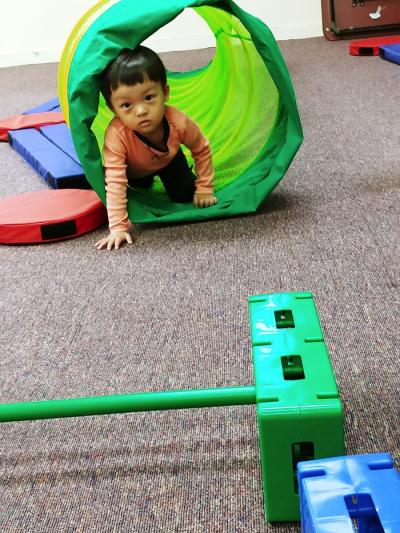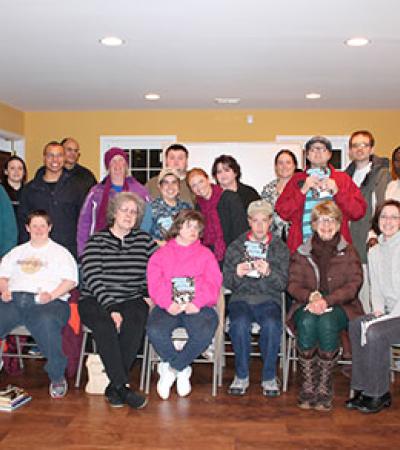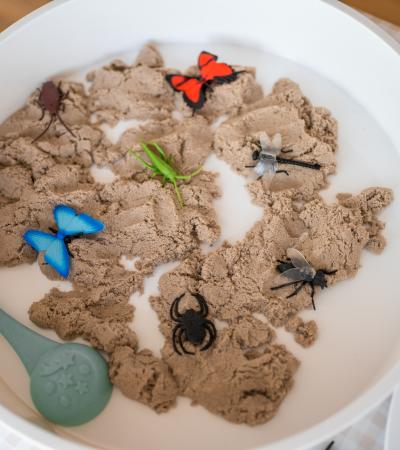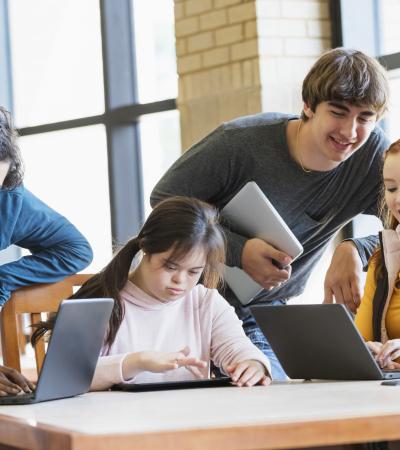When you think of providing programming at your library collaborating, with Special Olympics might not be the first organization that comes to mind. However, if you are in need of inclusive programming that reaches children with and without intellectual disabilities, Special Olympics Young Athletes program is a great place to start.
Young Athletes engages families by highlighting the power of play. Through a series of structured physical activities, songs and games, children with and without intellectual disabilities, ages 2 to 7 years old, learn basic motor development skills.

The programming provided by the Young Athletes lessons and curriculum are adaptable for indoor spaces like a library multipurpose room. They can be utilized in eight weekly one-hour sessions. The best part is that you can tie a child’s love of story time with Young Athletes; after each session, a book on inclusion or a story about sports can be shared as a reflection of the activities.
Through Young Athletes activities, children grow and develop in valuable motor skills, like walking and running, while also enhancing social and cognitive skills through interaction with their peers with and without ID. The opportunity for growth leads to a change in perception and a recognition for families of the value and worth of their child.
Librarian Karen Stuppi of the New Brunswick Free Public Library in New Jersey has been conducting Young Athletes for three years.
“I first heard about the Young Athletes program at the New Jersey Library Association Conference in the spring of 2016. I was interested in the program for three reasons," Stuppi says. "First, it was a program specifically geared toward people with intellectual disabilities. I thought this was a way to bring families of special needs children into the library, particularly those families who may not have thought of the library as a place they could bring their children. Second, I liked that it was an athletic program, both because I believe physical activity is important for all ages and because it is the type of activity not usually associated with libraries. And finally, there was no cost to the library to provide this program since all of the equipment is provided free by Special Olympics New Jersey.”
Often times, libraries are the first public space that parents will bring young children. Programming that is inclusive for kids with intellectual disabilities can make it a much more welcoming space for parents.
“I felt that parents sometimes would not bring their children (with intellectual disabilities) to the library because they thought they were too loud or distracting in a library setting," says Tommy Skrnich, a librarian at the Bogota Public Library in New Jersey. "I wanted Young Athletes to be a way to welcome them in the library and know that they are valued!”
Special Olympics Young Athletes opens the door to support families who may be new to the disability community through their children. All families strive to find a community that can understand and accept their child, while also supporting them to be successful in the future, especially parents of children with an intellectual disability.
Special Olympics provides Young Athletes lessons, training and equipment free of charge to participating libraries. If you are interested in learning more about this program or how to bring it to your library, contact Jennifer Hansen, Young Athletes Manager for Special Olympics International, at jhansen@specialolympics.org.



